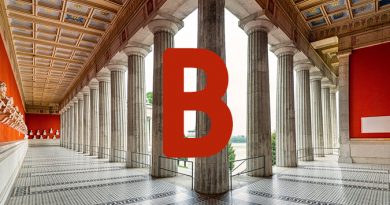F
Gordon Samuel Fahrni General surgeon, b. April 13, 1887, Gladstone, Man.; d. Nov. 3, 1995, Vancouver, aged 108. Following graduation in medicine (U. of Manitoba), he built a distinguished career as a surgeon, specializing in thyroid diseases in Winnipeg and Vancouver. A founder of the American Goitre Association and its president in 1928, Dr. Fahrni was acknowledged as a North American expert on goitre surgery and as a pioneer in the use of local anesthetic. Served in the Canadian Army in both world wars; senior consulting surgeon (rank of colonel) in WWII. A founder of the B.C. Housing Foundation, which established several low rent housing units for senior citizens. Member of the Order of Canada (1987). At the time of his death, he was the oldest doctor and the oldest living Shriner in North America.
William Farrell B.C. Tel’s first president b. c. 1854, Huddersfield, Eng.; d. Sept. 12, 1922, Vancouver. With wife Jessie Maude and infant son Gordon, he came to Vancouver in 1891 and together with associates, formed the nucleus of the B.C. Telephone Company, becoming its first president. Built 18 metre yacht Sheileena, named for his three daughters, Sheila, Kathleen and Nora. It was eventually renamed Kitchener and used in WWII by the Canadian army. Gordon (b. March 14, 1890, Huddersfield, Eng.; d. xx), served in the Royal Naval Air Force in WWI. He joined B.C. Telephone in 1919 as treasurer, rising to president (July 1928-58), and holding numerous directorships. In 1948, the William Farrell Building (Seymour and Robson) was built as B.C. Telephone’s head office. In 1963, because of a by-law he introduced barring B.C. Telephone directors over 72, he was forced to retire as chair.
Evlyn Fenwick Keirstead Farris Women’s education activist b. Aug. 21, 1878, Windsor, NS; d. Nov. 5, 1971, Vancouver. A minister’s daughter and graduate of Acadia U. (MA, 1898) with first class honors. From 1899-1905, taught history at a Connecticut high school. At 28, a founder of UBC’s University Women’s Club (1907) to “stimulate intellectual activity.” Club president, 1907-09, 1925-26. When the first UBC board was elected, women were excluded. In 1917, she was elected first woman on the board, serving more than 20 years. (LL.D, Acadia and UBC, 1942). Wife of J.W. deBeque Farris. “Clever, elegant, idealistic … made things happen.”
John Wallace deBeque Farris Crown prosecutor, attorney general b. Dec. 3, 1878, White’s Cove, NB; d. Feb. 25, 1970, Vancouver. His father was NB minister of agriculture. Attended Acadia U. and U. of Pennsylvania. Came to Vancouver in 1903 as city’s first Crown prosecutor. Took more appeals to the British Privy Council than any other Canadian. Elected MLA (1917-22); attorney general and B.C.’s first labor minister. Counselled major corporations but also defended society’s outsiders, such as a group of Chinese charged with gaming. The imposing Liberal senator was called a radical by his opponents, “a term which pleased him.” LL.D (UBC, 1938). His brother Wendell was chief justice of B.C. Supreme Court.
Alfred Graham Ferguson First chair, Vancouver Parks Board. b. c. 1844, US; d. June 2, 1903, San Francisco, Calif. A civil engineer, he was a wealthy CPR tunnel contractor. Built Ferguson block, initially of wood. After the Great Fire (1886), he rebuilt it with brick. Also owned other significant city properties. Served as a parks commissioner for several years in 1880s. An alien, “his swearing-in ceremony was tactfully omitted.” Ferguson Point is named for him.
John George Ventris Field-Johnson Agriculturalist, newspaper writer b. Eng.; d. Nov. 23, 1908, Vancouver. Supported concept of PNE. In 1908, called a meeting in a real estate office on New Westminster Ave., now Main St. and drew up a constitution. Some felt a Vancouver exhibition would detract from New Westminster’s Royal Agricultural Show; others wanted a site within a five cent ticket ride of Vancouver. A by-election defeated a $25,000 grant to the Hastings Park site so memberships were sold and building began. The PNE opened in 1910.
Charles Edward Findlater Choir master b. 1893, Buckinghamshire, Eng.; d. Aug. 7, 1975, Vancouver. A bookkeeper, he came to Vancouver in 1918 to teach voice and piano. Founded Wesley Methodist Church Junior Choir (1924), renamed the Elgar Choir in 1935. Choir made 13 overseas tours (1924-74). Known as the frying pan choir during the 1930s because of its tight budget. During WWII, travelled nationally raising money for wartime charities. In 1960, the choir was the first Canadian cultural group to visit the USSR; in 1963, made a world tour. Assisted by wife, Amy, a choirmaster’s daughter. Over 6,000 teens were members. The Elgar Choir ceased operations in July 1975, very shortly before Findlater died. “Mr. F” was “plain-speaking, straight-thinking and dressed in sturdy plaids.”
James Findlay Mayor of Vancouver, 1912 See Mayors of Vancouver.
Yvonne Millicent Firkins Theatre producer, director b. Worcester, Eng.; d. Jan. 6, 1966, Vancouver in her 70s. During WWI, lived in Birmingham where she was introduced to theatre. Came to Vancouver in 1920. Her husband, magistrate Walter H.C. Firkins, was a police court clerk for 31 years. Founding member, Vancouver Little Theatre, Vancouver Ballet School and Vancouver Dance Festival. President, B.C. Drama Association; founder, B.C. Dance Festival; member, Community Arts Council; director, Theatre Under the Stars. From 1939-45, production manager of service shows for Pacific Command. In 1964, opened Arts Club Theatre and produced the controversial Who’s Afraid of Virginia Woolf. “B.C.’s first lady of the theatre.”
Ernie Fladell, b. February 23, 1925, Flatbush, Brooklyn, d. North Vancouver December 8, 2006. Founder of the Vancouver International Children’s Festival and the Vancouver Folk Music Festival. A native of New York City, he worked for NBC and then in advertising. Co-authored “The Gap” with nephew Richard Lorber, condensed in 1968 as “The Generation Gap” in LIFE Magazine. Moved to Vancouver in 1971, opened Graphic House art gallery with wife Judy in Gastown and was befriended by Jack Wasserman and Jack Webster. Joined Vancouver’s Social Planning Department with Maurice Egan and Jonathan Baker. Instrumental in the City’s cultural programs, The Urban Reader and The Vancouver Book (1976). Oversaw the City’s participation in Habitat Forum at Jericho Beach held in conjunction with the 1976 UN Habitat Conference. The Children’s and Folk Music Festivals evolved from Habitat Forum. The Children’s Festival is a world leader in arts for young audiences and the prototype for festivals throughout Canada and the world. In the 1980s, Ernie was Director Public Relations CBC, Western Region and worked with Len Lauk. After retirement, he served as chair of the West Vancouver Seniors’ Centre Board of Directors. He was innovative, enthusiastic and found new ways to make good things happen. (Matthew Fladell)
Betsy (Elizabeth) Flaherty Private pilot b. c. 1881; d. October 18, 1968 Vancouver at age 87. A buyer for Spencer’s department store, she was a passenger on Trans-Canada Airlines’ first cross-Canada flight. She was over 50 when she received her license on Dec. 16, 1931, making her the oldest female pilot in Canada. In 1936, she was the oldest founder of The Flying Seven Canadian Women Pilots, flying out of Sea Island, “the forerunners of a splendid air movement.” During WWII, club members trained women in parachute packing, fabric work and other aspects of airplane care. Some of the trainees joined Boeing’s Vancouver plant or the RAF’s women’s division. Biblio: Daring Lady Flyers by Joyce Spring; No Place for a Lady by Shirley Render.
Harold Scanlon Foley Forestry executive, born 1900 in Minnesota, died 1974 in Vancouver. He was the head of his family’s Powell River Company (est. 1910), and oversaw its merger with MacMillan Bloedel in 1959. The pulp mill PRC established at Powell River was, for a time, the largest in the world. Among other firsts, the company created BC’s first medical plan. Foley was respected both by executives and by workers and their unions. His co-chairmanship at MacMillan Bloedel was overshadowed by his more volatile co-chairman, J.V. Clyne. Foley—nicknamed the Silver Fox—was a significant (and often anonymous) philanthropist.
Richard Samuel Ford Newspaper writer b. c. 1872, Petrolia, Ont.; d. Aug. 19, 1950, Ganges, B.C. Moved to Vancouver in 1907. One of three founders, with brother-in-law John P. “Black Jack” McConnell, of Saturday Sunset, later the Morning Sun (1912). The newspaper was in receivership (1916-17) when it was saved by Foley, Welch and Stewart, builders of the PGE railway. Trying to break its railway contract, the firm used the Vancouver Sun to embarrass the B.C. government. It then dropped the paper, later bought by Robert Cromie. Richard later opened a wholesale dry goods firm. One of Kerrisdale’s early residents, his home, Huron Lodge, was built in 1909 (45th and E. Boulevard).
Joe (Seraphim) Fortes Beach guard b. 1865, Barbados; d. Feb. 4, 1922, Vancouver. Came to Vancouver in 1885 and became a regular at English Bay, teaching children to swim. Appointed Vancouver’s first official lifeguard in 1901; credited with saving more than 100 lives. Lived in a cottage near the Alexandra Park bandstand. In 1986, the Vancouver Historical Society named him Citizen of the Century. The Joe Fortes Branch of the Vancouver Public Library, 870 Denman, was named for him.
Pop (Charles) Foster Boxing promoter b. c. 1874, Leeds, Eng.; d. May 5, 1956, Glendale, Calif. His father ran a carnival fight booth in England; his uncle was a lightweight champion. Fought in Boer War and WWI with Canadian Railway Construction Corp. Almost lost his legs in an explosion at Poperinghe, Belgium. Ex-fighter and stevedore. In 1923, discovered future world welterweight champion Jimmy McLarnin (b. Dec. 17, 1905, Ire.), selling newspapers in Vancouver. At 21, McLarnin was defeated for the lightweight title. At 26, came back to win world welterweight title. Foster’s protege was “the greatest fighter, pound for pound, in the prize ring today.”
Terry Fox Cancer crusader Article coming soon.
Sister Frances (Mrs. Fanny Dalrymple Redmond) First public health nurse b. c. 1852, Eng.; d. April 13, 1932, Vancouver. Arrived after Vancouver’s Great Fire (June 13, 1886). Nurse at St. James Church. Called the “Florence Nightingale of the City” for her nursing care during the smallpox epidemic of the 1890s.
Leonard Juda Frank Master photographer b. July 3, 1870, Berne, Germany; d. Feb. 23, 1944, Vancouver. A Jewish immigrant, he came seeking gold, arriving in Victoria in 1894. Served as postmaster in Port Alberni (1903-17). Began taking pictures with a crude camera won in a mining camp raffle. Moved to Vancouver to become its leading industrial and commercial photographer with a shop and lab at 553 Granville. His logging photos are judged the best ever taken; his photos of Vancouver people and places are “an impressive visual record … between wars.” Took more than 33,000 of the photos in the Vancouver Public Library historic collection.
Zebulon Franks Storekeeper, first Jewish religious leader in Vancouver b. c. 1864, Odessa, Ukraine; d. 1926, Vancouver. Son of a High Rabbi, he had a deep knowledge of Judaism. At 17, survived a pogrom that murdered his family. Met wife, Esther, on his escape across Europe; they went to Winnipeg in 1882 and Vancouver in 1887. A “junk merchant,” he opened a general hardware store at 42 Water. The city’s first responsible Jewish leader, he held the first Orthodox services in his home and store. President, Sons of Israel (B’nai Yehuda) in 1907, later the Schara Tzedeck Synagogue, with services held at 14 W. Cordova.
Simon Fraser Explorer




